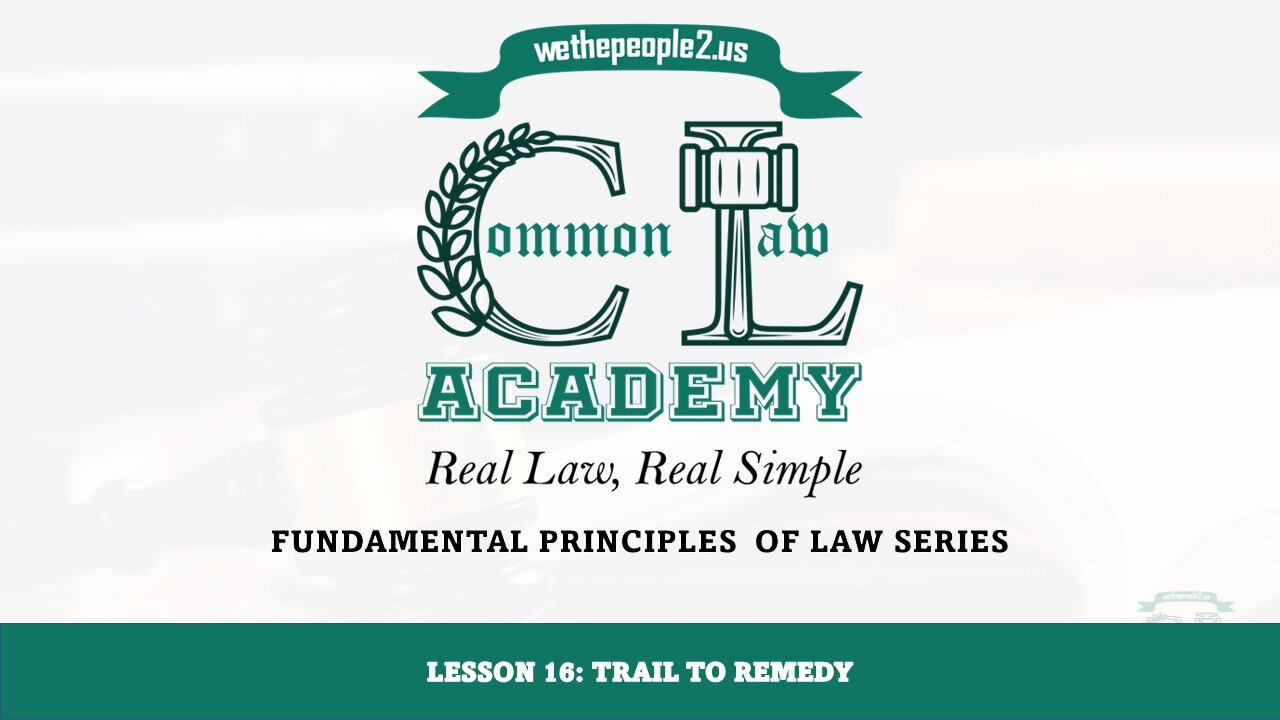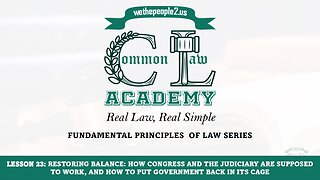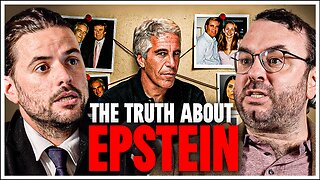Premium Only Content

On the Trail to Remedy: The Tanawah Chronicles
Lesson Description:
This lesson, based on an in-depth presentation by Tanawah Downing, explores the foundational principles of American governance through the lens of natural law, the original constitutional framework, and the moral duties of public servants. It critically examines the structure and application of justice in the United States, exposing the procedural and philosophical deviations that have led to widespread maladministration, unlawful imprisonment, and the erosion of due process.
Students will study the distinction between natural (God-given) freedoms and civil rights, the proper role of the grand jury as a mechanism of the people—not the state, and the duties of the judiciary as administrative officers bound to the supreme law—not to judicial discretion or precedent. Special attention is given to the separation of powers, the supremacy of the Constitution, and the obligation of every government actor to uphold the rights of the people without favoritism, prejudice, or self-interest.
Using the original Organic Massachusetts Constitution, The Law of Nations, Montesquieu’s Spirit of Laws, Common Sense, and natural law maxims, this lesson will challenge students to distinguish between lawful governance and administrative abuse. Learners will engage with themes of lawful authority, duty, fidelity, and justice—rooted not in modern policy or case law, but in immutable principles.
Learning Objectives:
Understand the foundational purpose of government as defined by natural law.
Examine the lawful role of judges, legislatures, and the executive within a federal republic.
Identify the origin, purpose, and violation of due process rights—especially indictment by grand jury.
Differentiate between natural rights and civil/statutory privileges.
Recognize how deviation from the Constitution has led to systemic injustice and modern forms of involuntary servitude.
Develop the language and reasoning to call for corrective action based on founding maxims and organic law.
-
 1:10:06
1:10:06
Wethepeople2.us
7 months agoLESSON 23: RESTORING BALANCE
2.67K2 -
 LIVE
LIVE
Kim Iversen
42 minutes agoTylenol vs Vaccines: Which One Is The REAL Cause Of Autism? The Truth Will Upset You
922 watching -
 LIVE
LIVE
Redacted News
1 hour agoTrump just DESTROYED the globalist U.N. & Stunning new details in Charlie Kirk's murder | Redacted
15,537 watching -
 LIVE
LIVE
Winston Marshall
1 hour agoThe Epstein Lies No One Wants To Admit...
281 watching -

The Officer Tatum
1 hour agoCharlie Kirk Investigation, Kamala Harris RETURNS To Spotlight + More | EP 174
2.1K5 -

Pop Culture Crisis
2 hours agoJimmy Kimmel's Return FOILED, YouTube ADMITS Censorship, Sabrina Carpenter HATES America | Ep. 921
2.37K1 -
 LIVE
LIVE
LFA TV
17 hours agoBREAKING NEWS ALL DAY! | TUESDAY 9/23/25
1,613 watching -
 LIVE
LIVE
freecastle
5 hours agoTAKE UP YOUR CROSS- Fighting for What Is RIGHT | Calibrating the Moral Compass
51 watching -
 1:04:49
1:04:49
vivafrei
3 hours agoOstriches on the Verge of Slaughter! Democrats Shill for Tylenol! Kimmel Wars & MORE!
151K32 -
 1:23:13
1:23:13
The Quartering
4 hours agoYoutube ADMITS Censorship & Will Restore Accounts, Liberals Vs Tylenol, Kimmel Pulled AGAIN!
147K45